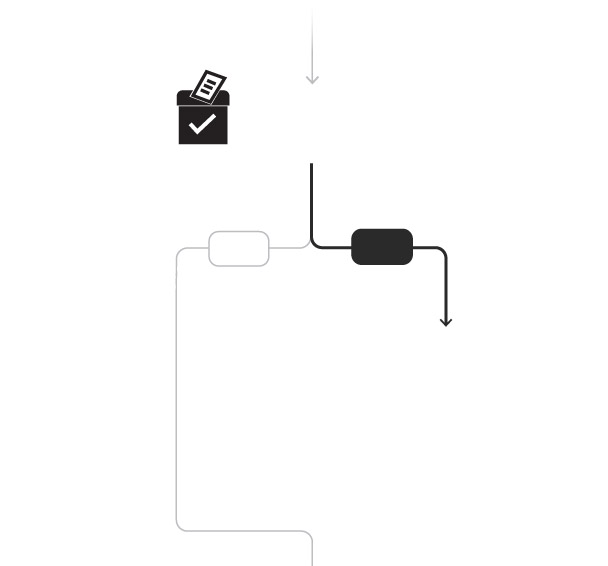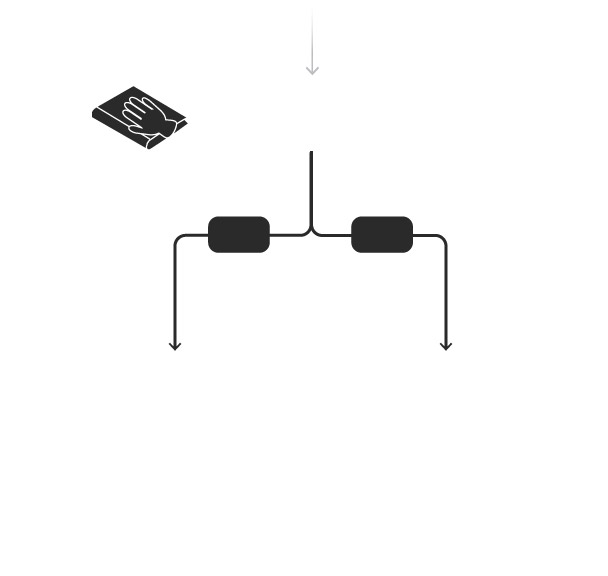Here is a look at four different scenarios by which Biden could be replaced at the top of the ticket, including both before and after Election Day.

Has a candidate been
nominated yet?
Biden is the presumptive nominee, but he could still be replaced at the convention — whether he chooses to step aside or not.

Has a candidate been
nominated yet?
Biden is the presumptive nominee, but he could still be replaced at the convention — whether he chooses to step aside or not.
The easiest way for Democrats to replace Biden is to do it at their August convention — especially if he agrees to step aside.
Doing so “is primarily a question of party rules and party law,” said Elaine Kamarck, a senior fellow at the Brookings Institution. “It is not in the Constitution, it’s not in state law, it’s not in federal law. It is mostly in party law.”
In this scenario, delegates would arrive at the convention uncommitted to Biden and they would then back another nominee in what’s known as an “open convention” where multiple candidates can compete for the nomination on the fly, according to Kamarck, who has also served as a Democratic delegate multiple times.
It has been decades since such a convention has occurred, but it’s not unprecedented. In the 1960 Democratic National Convention, for instance, multiple candidates jockeyed for delegates before then-Sen. John F. Kennedy secured the nod.
If Biden refuses to step down, it’s still possible, albeit unlikely, that a challenger emerges who tries to convince delegates to back them instead, per Kamarck.

The party chair can call the national committee into
session to pick a new nominee.

The party chair can call the national committee into session to pick a new nominee.
Once the convention ends, the campaign enters a new phase, where it becomes more challenging to replace Biden, but not impossible. According to Kamarck, the party has rules that empower the party chairman to call the national committee into session to pick a new nominee.
In fact, Democrats actually did this after the 1972 convention when they replaced Sen. Tom Eagleton, George McGovern’s running mate, because of concerns about his health.
If this were to happen again in 2024, however, it could face serious logistical and legal hurdles as ballot deadlines may have already passed and early voting begun in some states.

Did the electoral college
vote for a candidate yet?
The party can ask the electors to vote for the vice president-elect or an alternate candidate but they must abide by state rules.

Did the electoral college
vote for a candidate yet?
The party can ask the electors to vote for the vice president-elect or an alternate candidate but they must abide by state rules.
In the event that Biden wins the election, but is then incapacitated before the electoral college votes on Dec. 17, there is still a path for Democrats to replace him, but this is where things get tricky. There is no federal-level process for replacing a president-elect during this time.
“It’s kind of a murky situation,” Kamarck said. “My guess is that what both sets of electors would do is they’d probably vote for the vice-presidential candidate, but they are not required to.”
State rules on how this would work vary, according to Kamarck, with some states requiring electors to vote for the person who they were voted to elect. If this were to happen, it would likely be chaotic. “You could see some strange outcomes,” Karmack said.

Has that candidate taken
the oath of office?
The vice president is
first in the line of
succession according
to the U.S. Constitution
and the Presidential
Succession Act of 1947.
According to Section 3 of the 20th Amendment, the vice president-elect
becomes president.

Has that candidate taken
the oath of office?
The vice president is
first in the line of
succession according
to the U.S. Constitution
and the Presidential
Succession Act of 1947.
According to Section 3 of the 20th
Amendment, the vice president-elect
becomes president.
In the event Biden is incapacitated after the electoral college has voted, things are actually more straightforward than in the previous scenario.
In this situation, the Constitution stipulates in Section 3 of the 20th Amendment that the vice president-elect becomes president. Similarly, if Biden were to become incapacitated after the inauguration, the vice president would become president, as stipulated in both the Constitution and Presidential Succession Act of 1947.
Colby Itkowitz and Amy Gardner contributed to this report. Illustration by Ben Kirchner.

